What is Puerto Resistencia in Cali?
CNN toured the area 2:32
(CNN Spanish) --
The president of Colombia, Gustavo Petro, announced that dozens of young people from the so-called 'front line' - who led the protests against the Government in 2021 and were imprisoned - would be released and appointed peace managers before Christmas .
The announcement sparked criticism from some sectors who say that it would be promoting impunity.
"Hundreds of young people arrested for participating in a protest will be declared peace managers before Christmas Eve in Colombia," Petro said in Pasto, Nariño, this Monday, echoing a proposal from his campaign in which he promised to release those who have been imprisoned in the framework of the national strike, which saw protests for months in a row against the government of then-President Iván Duque.
“Here, in this place, in the year 2021, hundreds of young people who had participated in the protests passed, detained,” Petro said in a dialogue with members of the Community Action Boards in the Obrero neighborhood of Pasto, a city in the southwest of Colombia.
Dozens of young people were prosecuted and imprisoned for participating in the demonstrations last year, some of which ended in acts of violence and vandalism that left fatalities, injuries and destruction of transport stations, buses and private property, Reuters reported.
The Minister of Justice, Néstor Iván Osuna, said that the law allows the Government to apply this figure of release.
Osuna reiterated that social protest is a fundamental right and that the possible beneficiaries will assume commitments to promote peaceful coexistence and humanitarian agreements.
advertising
"This measure has the consequence that if these people are deprived of their liberty, they will be released from jail, but they will continue to be linked to the criminal proceedings that are being investigated or prosecuted. It is not a pardon, it is not an amnesty," he said in a Osuna statement, who admitted the possibility that the measure benefits people already convicted.
What is the front line of the protests in Colombia and what are they asking for?
Members of the loose collective of protesters called the front line clash with riot police during anti-government protests on July 20, 2021 in Bogota, Colombia. (Credit: Guillermo Legaria/Getty Images)
Who will benefit from the release measure?
The release measure would benefit not only front-line youth, but also "social leaders that the government considers can contribute to the consolidation of a peace process in their regions and to the social conflict that is highly visible in the territories," he said. Colombian Interior Minister Alfonso Prada to journalists in Bogotá.
"The president, once the analysis of each particular case is issued individually and independently, will adopt the decision, which will basically be a request for the suspension of the capture that he will address to the corresponding judicial authority," said Prada.
According to Prada, the cases of 230 people are under study.
The government spokesman reiterated that it is not an amnesty and that those who have active processes will continue to be linked to them.
"It is not an amnesty, it is not a pardon. It is not a judicial pardon. Those who are going to be beneficiaries of this measure are initially linked to the files and will run the luck that the judges finally decide in a judicial sentence. The processes are not suspended " said the interior minister.
The beneficiaries of this measure may not "violate a single legal norm under penalty of being revoked the benefit of the suspension of the capture," added Prada.
The functions of these new peace managers will be regulated in the presidential decree and it is expected that youth, peasant, Afro-Colombian and indigenous leaders will be linked to this "who could help us pacify coexistence in the territories and, therefore, it will be a measure that We will review very carefully,” said the interior minister.
One of the functions as peace managers for those who have been accused of damaging public assets will be to take care of these assets so that these behaviors are not repeated, said the minister.
Related video: The keys to the new strategy against drugs in Colombia 4:46
Some sectors oppose the measure
Sectors in opposition to the government have spoken out against this measure, saying that the government will reward those who commit crimes.
Former Colombian Defense Minister Diego Molano, who was an official during the 2021 protests, said that people jailed during the demonstrations were not deprived of their liberty for protesting but because they committed crimes, Reuters reported.
Meanwhile, right-wing senator Miguel Uribe said that while "protesting is a right. Whoever does it must do it peacefully."
"Members of the front line are detained for terrorism, homicide and torture. Not for protesting. Petro cannot violate the law or the independence of powers. He is president, not a dictator," added Uribe.
For Senator Paloma Valencia, also from the opposition Centro Democrático, Petro's proposal is "total impunity."
It is expected that this Tuesday the regulation of the decree that would begin the analysis of the cases individually will be known and once the decision of whom to release is adopted, the president will request the suspension of the capture of these people to the corresponding judicial authority. .
The other reasons for the protests in Colombia and what is coming for the country in crisis
What happened during the 2021 protests?
The 2021 protests began as a rejection of the economic policies of the Iván Duque government (2018-2022), including a controversial tax reform that sought to tax the family basket in the midst of the covid-19 pandemic.
Later the Government withdrew the controversial reform, but the claims went further: they protested against police brutality, unemployment, the violation of human rights and against the breach of the peace agreements, among other issues.
However, within the framework of the protests, a large number of riots were also reported, which left deaths, injuries and property damage.
On the one hand, human rights organizations reported deaths and injuries on behalf of the armed forces in the days of social protests, and on the other, the government denounced attacks and even murders against members of the security forces.
According to May 2021 figures from the NGO Temblores e Indepaz, which independently counted the figures left by the national strike in 2021, between April 28 and May 7, at least 47 murders, 963 arbitrary detentions, 28 victims of eye injuries and more than 1,800 violent acts.
The Colombian government said the protests left at least 27 dead and more than 2,000 injured.
What are some members of the front line accused of?
The members of the front line are those young people who were the protagonists of the protests in Colombia during 2019 and 2021. Their main objective was to be on the front line of the protests and repel the attacks and violence by the Mobile Anti-Riot Squad (Esmad). at the end of 2019 against the protesters and protect them.
The name "front line" has to do with the fact that they are the closest to the Esmad when it is launching stun bombs or tear gas against protesters.
These types of groups also emerged in the demonstrations in Chile or Hong Kong in previous years.
But the front line is not a cohesive group.
There are as many of these groups in as many cities as necessary.
It is not a unique group and others identify with the spirit of it.
They can be understood as groups of people who meet in different parts of the country to defend the protesters if there are violent actions by the public forces in the protests.
And some members of these groups were accused by the authorities of committing crimes of kidnapping, torture, setting fire to vehicles, service stations, as well as theft and looting during the time of the national strike, according to the Prosecutor's Office.
President Petro has said that "hundreds of young people" were arrested for participating in the social protest.
"The right to protest is a democratic right," said Petro, referring to the proposal to release hundreds of these young people who would support his Total Peace plan whose objective is to pacify the country from violence.
-- With reporting from CNN's Melissa Velásquez Loaiza, Marlon Sorto, Stefano Pozzebon and Caitlin Hu; and information from Reuters.
Gustavo PetroProtests in Colombia

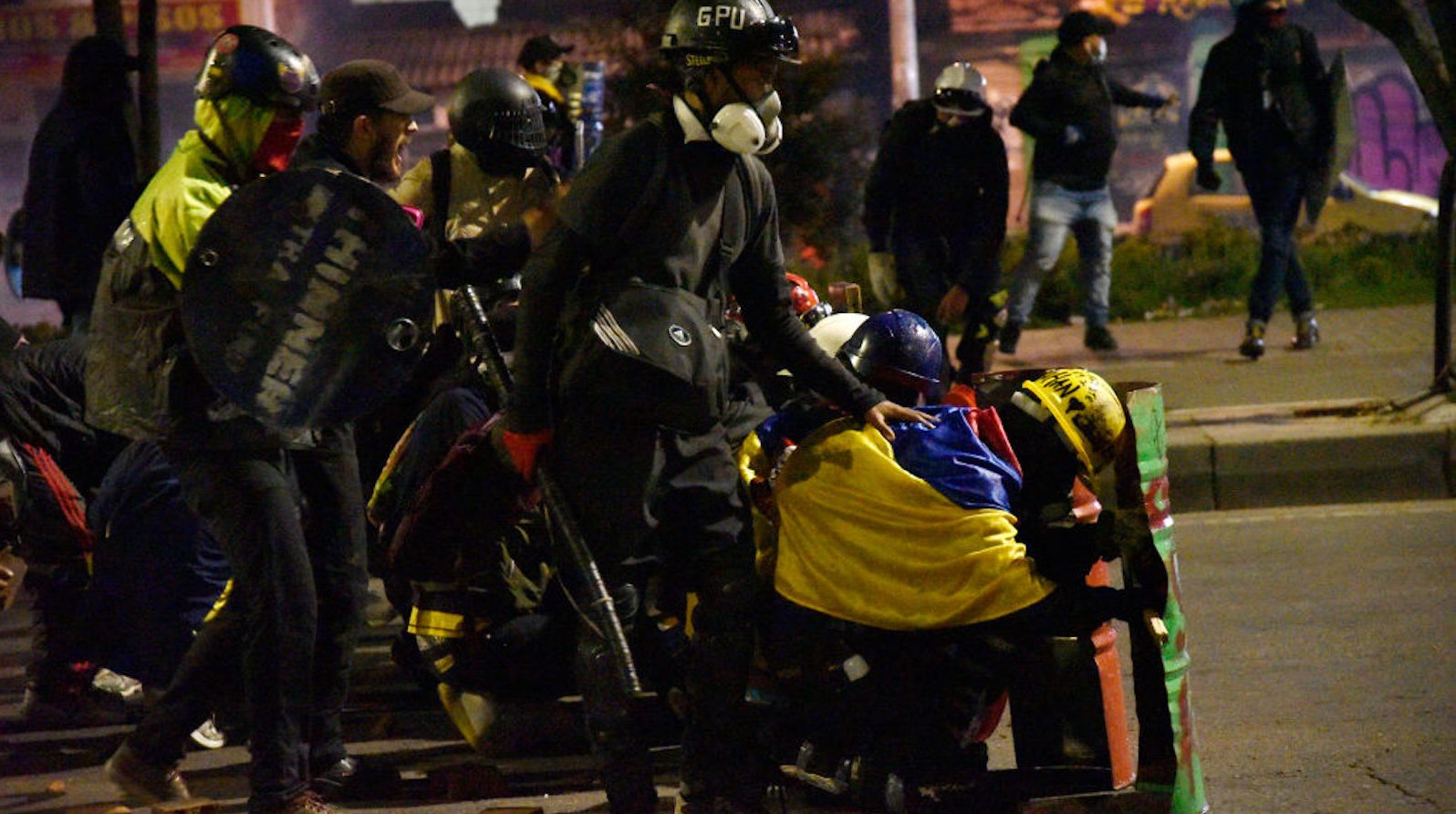
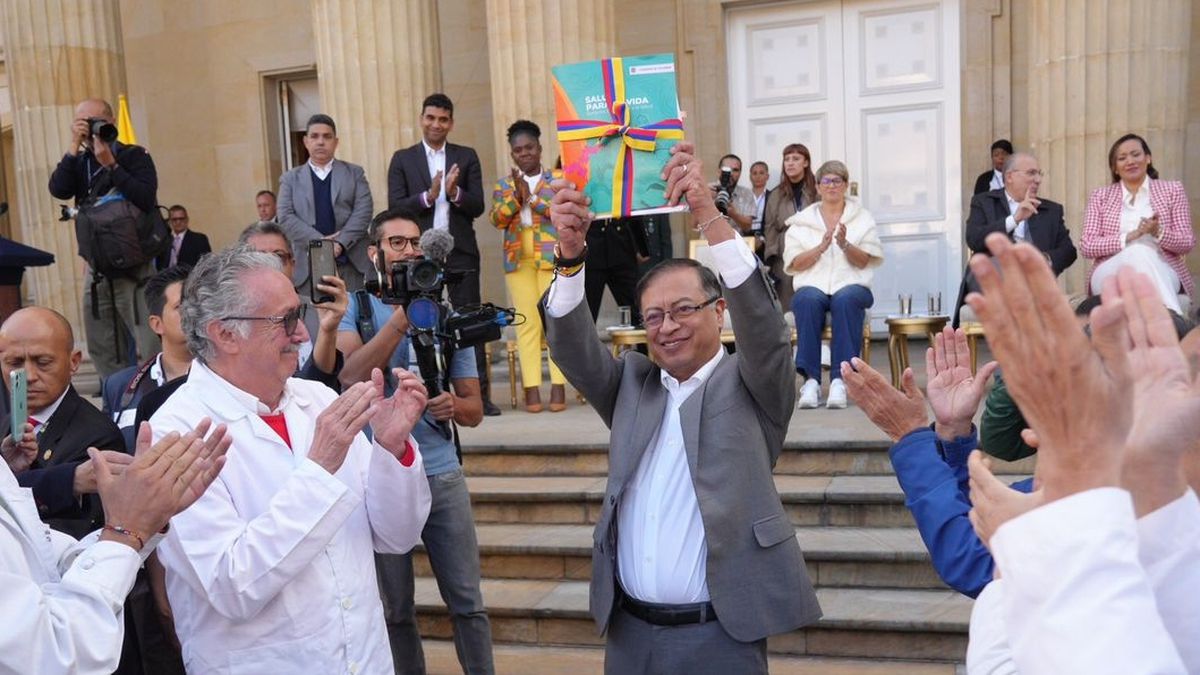
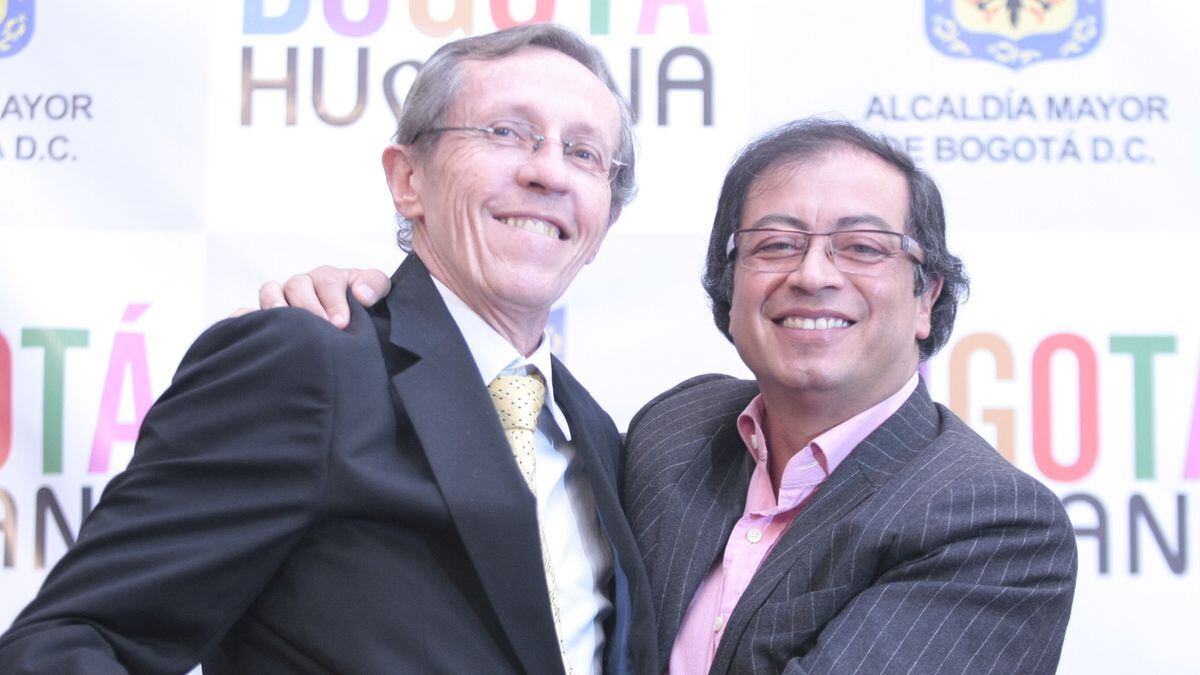
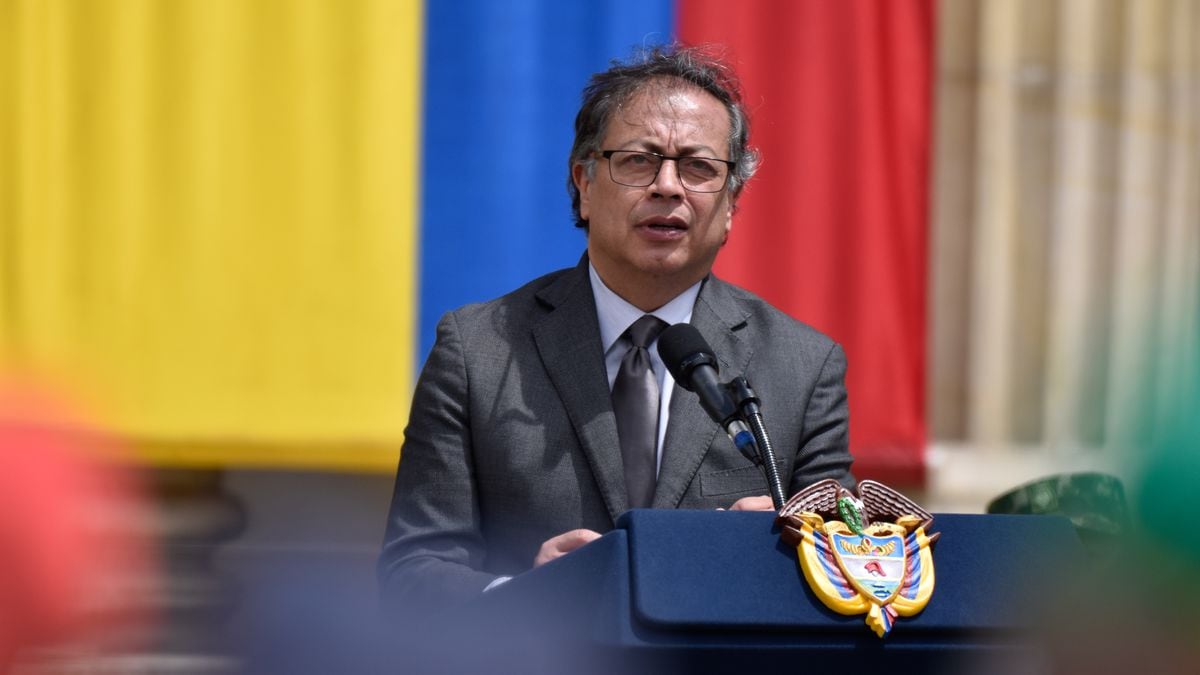

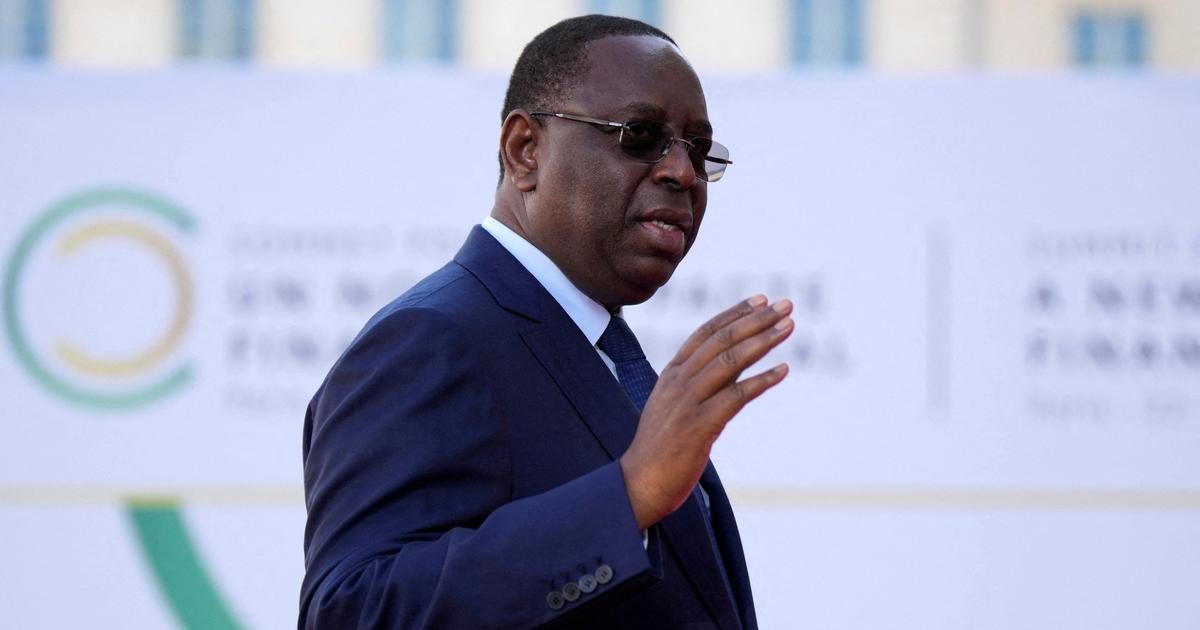
/cloudfront-eu-central-1.images.arcpublishing.com/prisa/MTSQ4Y67KD7UYSQ2QOVVGGYB5I.jpg)
/cloudfront-eu-central-1.images.arcpublishing.com/prisa/VZV6NXS7SREIJAIZZNECDP7DZA.jpg)



/cloudfront-eu-central-1.images.arcpublishing.com/prisa/KMEYMJKESBAZBE4MRBAM4TGHIQ.jpg)


